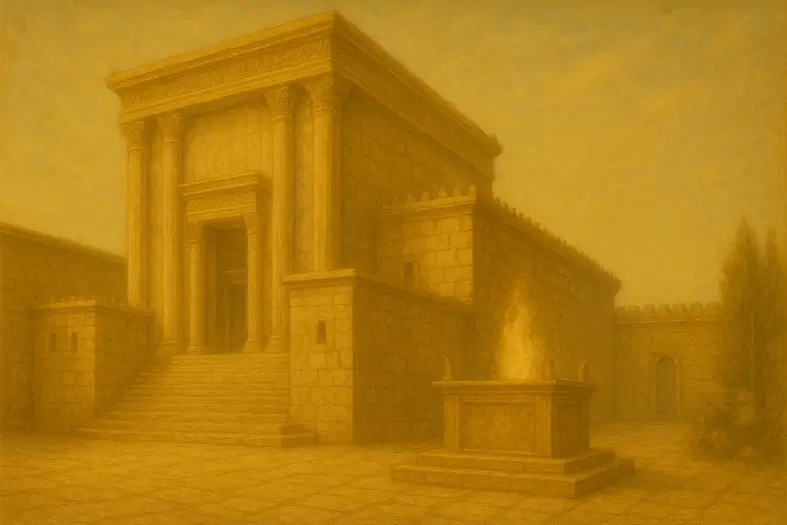


It is forbidden to offer animals with temporary blemishes on the altar.
This mitzvah prohibits offering animals that bear temporary blemishes for korbanot. While permanent blemishes disqualify an animal absolutely, even a temporary blemish — such as an injury that will heal — renders it unfit until it is completely healed.
Rambam codifies this prohibition as separate from other laws about blemished animals (336–340), teaching that every act involving a blemished animal is independently forbidden. Sefer HaChinuch explains that the Torah uses strong language (“abomination”) to emphasize the severity of bringing flawed offerings, even when the blemish may eventually disappear.
The Talmud clarifies categories of blemishes and whether they are permanent or temporary, noting that the altar’s sanctity requires absolute perfection at the time of offering. Ramban expands that Hashem demands wholeness not only in the outcome but also in the state of the offering at the moment of service, underscoring reverence and awe.
Commentary & Classical Explanation:


Represents the concept of spiritual intentionality, purity, and sanctity—set apart for a higher purpose.
Concerns the Beit HaMikdash, korbanot (offerings), and priestly service.
Signifies awe and reverence toward Hashem—living with awareness of His greatness and presence.
Mitzvot that uphold fairness, honesty, and moral responsibility. Justice is kindness structured — ensuring that society reflects G-d’s order through truth, equity, and accountability.
Mitzvot that define and deepen the relationship between a person and their Creator. These include commandments involving belief, prayer, Shabbat, festivals, sacrifices, and personal holiness — expressions of devotion rooted in divine connection.

Dive into mitzvos, prayer, and Torah study—each section curated to help you learn, reflect, and live with intention. New insights are added regularly, creating an evolving space for spiritual growth.

Explore the 613 mitzvos and uncover the meaning behind each one. Discover practical ways to integrate them into your daily life with insights, sources, and guided reflection.

Learn the structure, depth, and spiritual intent behind Jewish prayer. Dive into morning blessings, Shema, Amidah, and more—with tools to enrich your daily connection.

Each week’s parsha offers timeless wisdom and modern relevance. Explore summaries, key themes, and mitzvah connections to deepen your understanding of the Torah cycle.